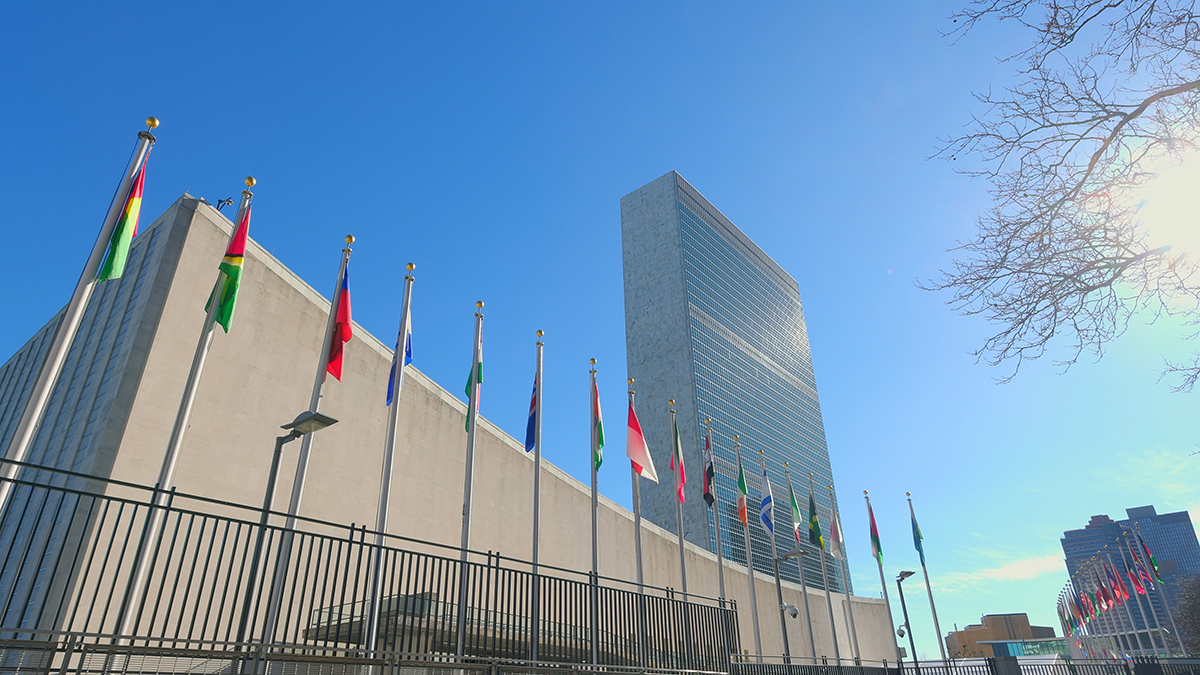© Shutterstock - United Nations Headquarter in New York
Past the halfway mark, the SDGs are alarmingly off track. Only 17% of the goals are currently on track to be met by 2030, while another 17% have regressed from their 2015 baseline. This stark reality is underpinned by a growing financial gap, exacerbated by an international environment that has become increasingly inhospitable to development.
With each crisis characterizing the period, what has become increasingly apparent is the need for multilateralism and international financial reform that more adequately addresses the nature of global exogenous shocks. In 2015, the investment gap for the SDGs in the Global South was estimated at $2.5 trillion. Today, that gap has ballooned to $4 trillion, underscoring the urgent need for a reinvigorated global commitment to sustainable development.
The Summit of the Future signaled willingness to change course and revive multilateralism. Building on the momentum of the Summit of the Future, the Fourth International Conference on Financing for Development (FfD4) in June 2025 presents a crucial opportunity to take concrete actions on and breathe new life into the financing for development agenda.
To bring the world back onto a sustainable development path, it is essential to move away from ad hoc solutions that treat the symptoms rather than the root causes of vulnerability. It is not only necessary to reignite growth and sustainable development—but this must be done urgently and swiftly, given the severity of the challenges facing humanity today. This means addressing longstanding obstacles to development, including lack of effective market access, insufficient development aid, and the need for more productive investment and climate finance.
Building a conducive environment for financing for development means reigniting the traditional enablers of growth, such as international trade, investment and technology transfer. Investing in infrastructure, institutions and human capital at the national and regional level is a necessary pre-condition to ignite the enablers.
Beyond the reform of the international financial architecture, governance reform at the level of the multilateral trading system, of the international investment agreement framework and on intellectual property, are also indispensable to ensure the desired development results.
Scaled development finance channeled towards critical infrastructure and human capital is essential. Such investments will build the productive capacities of developing countries, boosting growth, attracting private investment and enhancing fiscal space. Ultimately, growth and better fiscal space will enhance debt sustainability and domestic resource mobilization, potentially generating more development financing and a virtuous cycle.
It follows that the action areas of the financing for development agenda are deeply interrelated and must be acted upon in synergy to create sustainable development financing: that is financing for development and financing from development are interdependent.
UNCTAD, with its mandate on the integrated treatment of trade and development and interrelated issues in the areas of finance, technology, investment and sustainable development, is strategically placed to provide insights into the interconnections among the various action areas of the financing for development agenda. UNCTAD will be presenting its most recent analysis on net income transfer and highlighting the dimension of the traditional enablers in this context.
Structure and Format
Panel discussion to be moderated by Juan Jose Martinez Badillo, Chief, UNCTAD New York Office
Panelists:
- E. Janine Elizabeth Coye-Felson, Deputy Permanent Representative of Belize to the United Nations
- Herman Mark Schwartz, Professor Emeritus of Politics and Public Policy, University of Virginia
- Penelope Hawkins, Acting Head, Debt and Development finance Branch, UNCTAD
- Jason Braganza, Executive Director, AFRODAD
Participation and Registration
This side-event is open to all participants already registered for the FfD4 Prep Com and anyone with a UNHQ ground pass.

